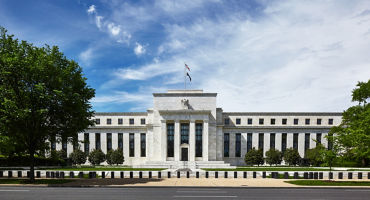Why is interest in bitcoin on the rise?
Adoption of bitcoin, generally considered the leading cryptocurrency in the market, has been rising in recent years as market participants have become increasingly confident in its underlying technology and its role as a store of value. Now, interest in bitcoin is getting a big boost from the political environment.
The Trump administration has voiced support for bitcoin and cryptocurrency in general. Investors have welcomed the change, given recent regulatory history in which the SEC and CFTC tussled over which crypto assets fall under their jurisdiction and crypto firms were frustrated as former SEC Chair Gary Gensler relied primarily on enforcement actions to regulate crypto retroactively, rather than proposing rules for comment.
Several policy ideas and initiatives that are on the table with the new administration could provide more support for bitcoin in coming years:
US leadership in bitcoin adoption — The US could take a leadership role in bitcoin adoption and regulation, positioning itself as the primary custodian of a global bitcoin infrastructure. This would allow the US to retain influence over a decentralized asset while supporting the diversification of global reserves in a way that benefits its interests. In an early indication of this leadership, Trump signed an executive order in March to establish a Strategic Bitcoin Reserve using bitcoin owned by the federal government that was seized through criminal or civil proceedings (the order also establishes a Digital Asset Stockpile consisting of digital assets other than bitcoin).
SEC task force — The SEC has formed a new task force “dedicated to developing a comprehensive and clear regulatory framework for crypto assets.” For bitcoin, the regulators are looking to define a market structure where brokers can freely engage and crypto assets can exist alongside digital securities. The SEC’s repeal of SAB 121 in late January, which restricted banks from custodying bitcoin, is an example of the changing landscape. Banks now want more clarity around the requirements for monitoring crypto asset transactions.
Energy sector support — Trump’s efforts to lower energy prices, if successful, should make bitcoin mining more profitable, as electricity is one of the largest operational costs in that process. This could attract more miners to states with excess capacity, further utilizing the available energy and potentially providing economic benefits to those states. There are also state-level initiatives aimed at addressing the energy-intensive nature of bitcoin. In states like Texas, for example, miners can help stabilize the grid by using less energy during peak demand and more energy when demand slumps. In addition, bitcoin mining is being used as a buyer of last resort to make renewable energy production profitable.
With these policy tailwinds, several US states have proposed legislation to create state-level bitcoin reserves, with some also considering other digital assets. As of this writing, 23 US states have introduced bills supporting the creation of a bitcoin reserve and 18 of them have been passed into law. Retirement systems in Wisconsin and Michigan have also allocated a small percentage of their defined benefit pension plans to bitcoin via ETFs.






















